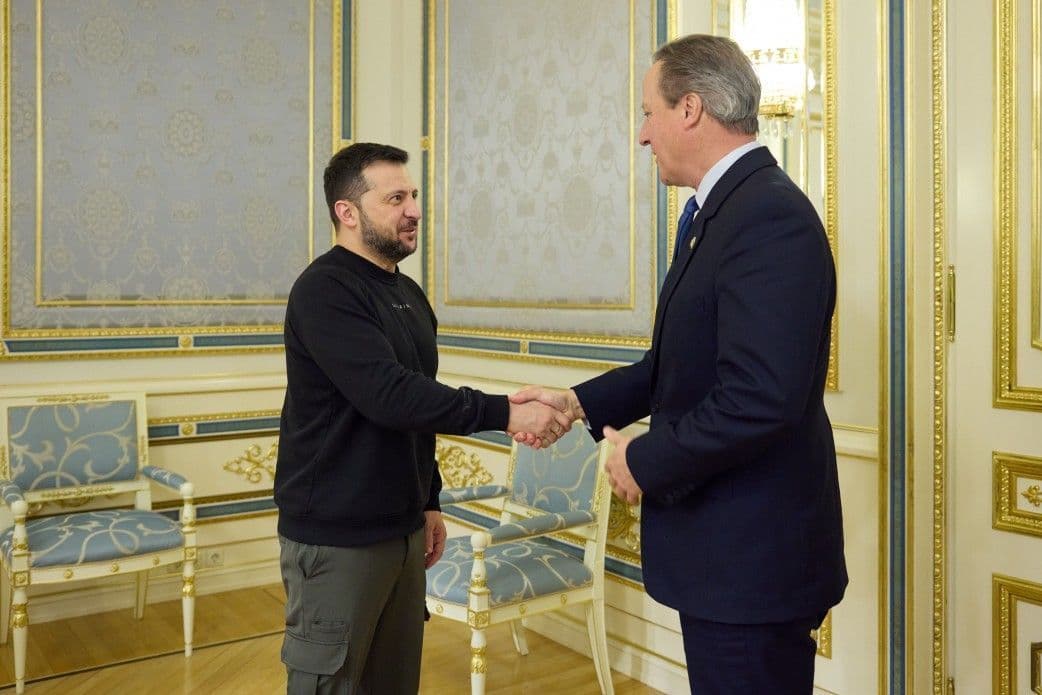UK Foreign Secretary: Support for Ukraine will continue for years, not subject of controversy as in US

U.K. Foreign Secretary David Cameron said on Jan. 9 that support for Ukraine within the country is bipartisan and not controversial as in the U.S., and that the U.K. is ready to help for many years to come.
The U.S.'s role in supporting Ukraine has increasingly become a partisan issue, with Democrats largely in favor of continued aid compared to growing skepticism in parts of the Republican party.
Cameron's comments came during a Foreign Affairs Committee meeting, his first since being appointed as Foreign Secretary in November. The meeting was largely dominated by discussion about the Israel-Hamas conflict, which Cameron lamented was "taking attention away from Ukraine."
"It is the job of the strongest supporters of Ukraine, of which I would say the U.K. is rightly one, to do everything we can to keep it as high up the agenda as possible," he added.
When asked about the possibility that the 2024 U.S. presidential election may harm Western support for Ukraine, Cameron said he was confident that the U.K. would be able to ensure its long-term commitment because it is a not "an issue of contention in British politics, whereas it is a little bit more in American politics and in some European countries."
"We are prepared to support Ukraine through 2024, 2025, 2026....because this is absolutely the challenge of our generation," he added.
Cameron also emphasized that the U.K., along with Ukraine's other Western allies, must step up their military production to match the growing trend of Russia being transformed into a wartime economy.
The combined GDPs of the pro-Ukraine coalition "outrank Russia 25-1," Cameron said, "so it should not be impossible for us to get on a sufficient industrialized footing" to compete with Russia's increased capacity.
The coalition still "really needs the Americans to come forward with their ($61.4 billion) package" because the combined total of the U.K. and EU's military support for Ukraine is roughly equal to that of the U.S. alone.
Other European leaders have echoed that the EU cannot alone make up for a significant decrease in U.S. aid to Ukraine.
Cameron said he was "pretty confident" that the U.S. would eventually approve the package, which was blocked by Senate Republicans in December, because "ultimately there is a majority in Congress for it."
The U.S. aid package, which was rejected largely over unrelated domestic political disputes, will likely come to another vote in the coming weeks.












